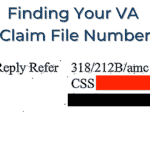Disabled veterans may qualify for both Social Security disability benefits and veterans disability compensation. If you meet the separate requirements of each type of benefit, you can receive both payments. There are some circumstances in which one might offset the other, but it can be beneficial to apply for both. For a more in-depth discussion about whether applying for both is an option for you, call a veterans lawyer today: 888-966-6566.
Will I have to apply for Social Security disability benefits and Veterans Compensation separately?
Yes. Although they are both government agencies, the Social Security Administration (SSA) and the Department of Veterans Affairs (VA) are two separate agencies that use different qualifying rules and different review processes. We will help you determine whether you meet the criteria for both.
What criteria do I need to meet for each benefit?
To decide whether you qualify for SSD benefits, the SSA will determine the following:
- Is your medical condition severe enough to qualify?
- Are you totally disabled and unable to work?
- Do you meet the income requirements? (No more than $1,170 per month in 2017)
- Do you have enough work credits to be eligible for Social Security Disability Insurance (“SSDI“)? (Did you work long enough at jobs that paid into the Social Security system?)
To decide whether you qualify for veterans benefits, the VA will determine the following:
- What is the level of your disability? (measured in percentage)
- Is your disability service-related?
There is one major difference between SSD and VA benefits. While you must be totally disabled to qualify for SSD benefits, the VA awards benefit amounts based on your disability percentage. For example, in 2023, a veteran with a 20 percent disability rating would receive $327.99 a month. A veteran with a 90 percent disability rating, a spouse, and no children would receive $2,353.39 each month. SSD benefit amounts are based on your income when you worked and paid into the Social Security system via FICA taxes. During your military service you are credited as though you paid in through FICA even though the taxes were not withheld from your military paycheck.
Working while applying for VA benefits is not an issue in most cases, although there are some exceptions – particularly if you are filing for TDIU. If you are working and have filed for both Social Security disability and VA benefits you should speak to a qualified attorney who handles both SSD and VA claims to find out if you are still eligible for the benefits you have applied for.
Will I qualify for one if I qualify for the other?
Not necessarily. Qualifying for VA disability benefits with a high disability rating means that you have better odds of qualifying for SSD benefits.
However, qualifying for SSD benefits, even though you must be totally disabled, rarely has an impact on whether you will qualify for veterans disability. This is because your disability must be service-related to qualify for VA benefits.
What are the advantages of veterans disability compensation?
There are several advantages of VA disability compensation, if you are a military veteran with a service-related disability. There is no income limit for VA disability compensation. This means you are eligible to recover benefits and work at the same time as long as you are not receiving TDIU benefits.
Another advantage of VA disability compensation over SSDI is that VA disability does not require you to be 100 percent disabled. You can receive VA disability compensation for a partial disability, with as little as 10 percent disability.
There is also no work credit requirement for veterans disability compensation. While SSDI requires that you have worked long enough at jobs that paid into the Social Security system, there is no similar requirement to qualify for veterans disability compensation.
You also have the opportunity to receive more than the average Social Security benefit with VA benefits. For example, a veteran with a 100 percent disability rating, a spouse, and one child can recover $3,971.78 each month in 2023.
What are the advantages of Social Security disability compensation?
One big advantage is that you do not need to prove your disability is service-related. This is often the most difficult part of qualifying for VA benefits.
In addition, the VA can take longer to decide if you qualify, so you could receive your SSD benefits much earlier.
Can disabled veterans get Social Security disability and VA Benefits?
Consider the following. A serviceman did a tour of duty in the military. While in the line of duty, the serviceman was injured by an IED. After a period of medical treatment and rehabilitation, he received a military disability rating of 40 percent, received an honorable discharge from the service, and receives veterans disability compensation.
He was able to enter the civilian workforce working an office job which required a low level of physical activity. His job paid into the Social Security system. After working in this job for eleven years, his disability had worsened to the point that he was no longer able to work, even with modifications. He applied for Social Security Disability benefits and the Social Security Administration determined he is disabled based on the rules of their disability program.
Now, he is eligible to receive both SSDI and VA benefits.
If I do not qualify for SSDI or VA disability compensation, is there any other program that can help me?
Yes. If you do not qualify for SSDI benefits because you do not have enough work credits, you might qualify for Supplemental Security Income (SSI) benefits. You will have to meet the same medical standards and have low income and few assets.
If you do not qualify for VA disability compensation, you might qualify for a VA disability pension which is sometimes called a non-service connected pension. A VA disability pension can be based on a disability that is not service-related. Similar to SSI, a VA disability pension requires the recipient to have low income.
Where can I get help?
Getting either SSD or VA disability compensation benefits can be confusing enough on their own, but seeking both can be immensely challenging. But you do not need to do this alone. At Lunn & Forro, PLLC, we help disabled people get the benefits they deserve. We are grateful for your service to our country, and we will treat you with respect. Call us today at 888-966-6566 to schedule your free consultation
Related Posts

What Is the VA Benefits Direct Deposit Schedule?
The VA benefits direct deposit schedule determines when you will receive your VA benefit check. If you have just been approved for VA benefits then

Where Do I Find My VA File Number?
A VA file number is assigned when you file a claim for VA benefits (usually compensation). If you have never filed for any benefits from the VA then you will not have a number.

How Many Veterans Receive Disability Compensation?
Millions of veterans across the country depend on Disability Compensation benefits to meet their basic needs. Enrollment in the VA benefits system

VA Benefits If My Discharge Is Not Honorable
The military’s has 5 main classifications of discharge: Honorable discharge Discharge under honorable conditions or a general discharge Discharge under other than honorable conditions or
VA Pension vs VA Compensation
Although both programs pay benefits to disabled Veterans, there are several differences between Veterans Pension and Veterans Compensation benefits. Veterans Pension Pension benefits are available
What is TDIU? How do I Qualify? How do I Apply?
Total Disability Individual Unemployability (TDIU) is a crucial benefit provided by the United States Department of Veterans Affairs (VA) to support veterans who are unable
How do I file a VA claim for PTSD?
If you are filing a claim for PTSD, you need to complete VA form 21-0781 to submit with your application for VA compensation. This form
When Should I File for VA benefits?
If you believe that you may qualify for VA benefits and you have never filed a claim before, you need to file a claim with



